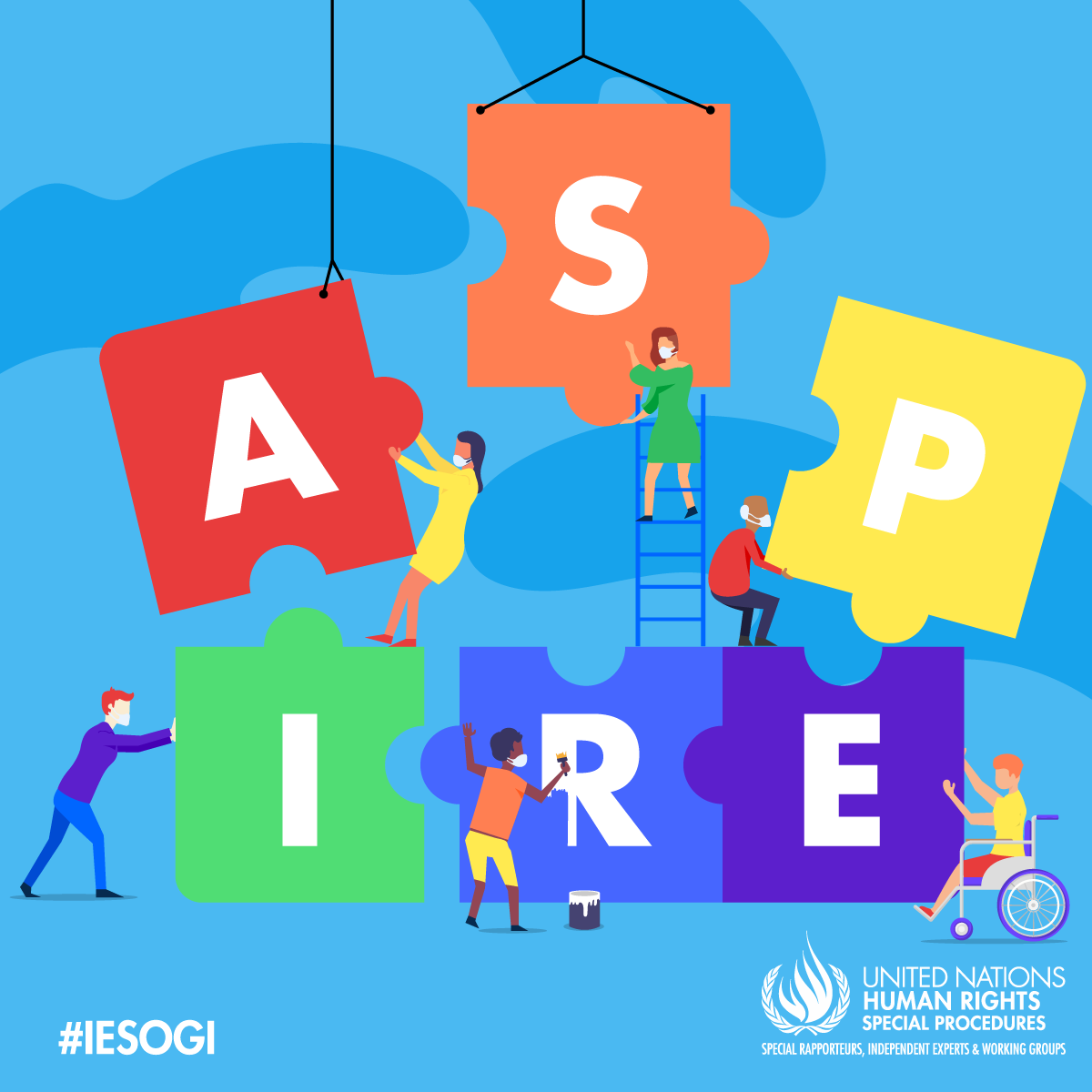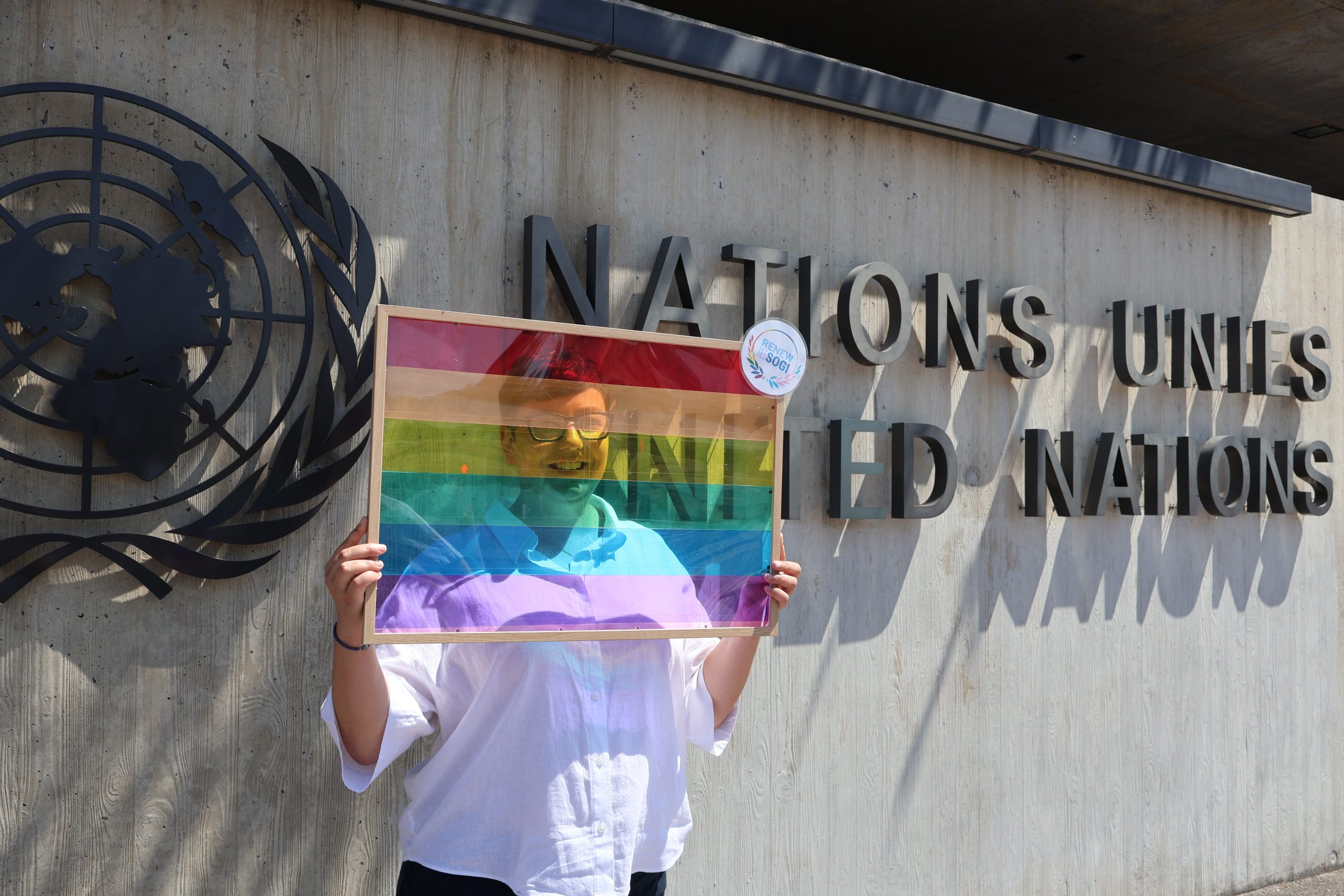In response to the development of national policies addressing the spread of COVID-19 and its economic consequences which have disparate and discriminatory impacts on LGBTI persons, the UN Independent Expert on SOGI, Victor Madrigal-Borloz , published the ‘ASPIRE Guidelines on COVID-19,’ The Guidelines detail how States can ensure their public health and economic policies do not exacerbate discrimination, but rather, ‘respect the inherent dignity of all people.’
Through extensive consultation with civil society, the Independent Expert concluded that, ‘in order to be efficient and effective, measures must be taken within a human rights-based approach through a framework of human rights principles of equality and non-discrimination, participation, indivisibility, empowerment and accountability.’ In addition, Madrigal-Borloz stresses that any emergency measures ‘must be necessary to combat the public health crisis posed by the pandemic, and be reasonable and proportionate.’
Particularly relevant guidelines include recommendations for governments to support LGBTI defenders ‘and learn from their significant achievements,’ ensure LGBT voices are represented and reflected at all stages of the elaboration of COVID-19 response measures, and gather evidence on the impact of COVID-19 on LGBT persons.
This June, in a submission to the Human Rights Council, ISHR joined 187 organisations in calling on States to protect the human rights of LGBTI persons and those defending their rights during the pandemic. ‘We welcome the Independent Expert’s guidelines, which amplify civil society calls for States to be held accountable for ensuring that the pandemic does not worsen existing inequalities, structural barriers, prejudices and discrimination against LGBTI persons and defenders,’ said ISHR Legal Counsel and Programme Manager Tess McEvoy.
‘Only by truly listening to LGBTI voices and understanding how they are experiencing the consequences of COVID-19 can States begin to ensure the human rights of all persons are protected during these unprecedented and uncertain times,’ McEvoy added.
The guidelines can be accessed here.
Contact: Tess McEvoy, [email protected]
Photo: OHCHR




